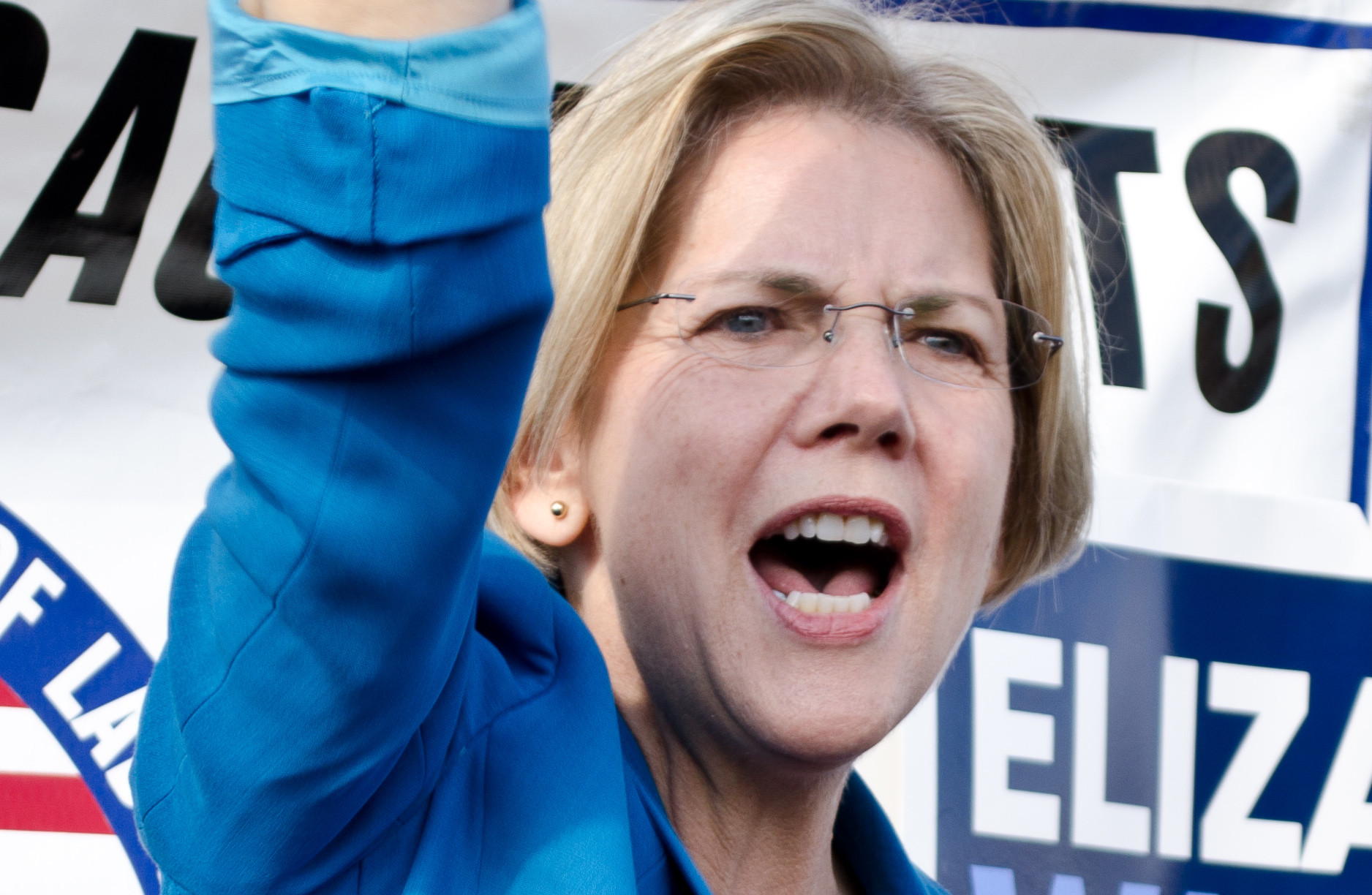The phrase “American accent” is a paradox. There are over 20 recognized dialects of “American English” alone, and there are nearly infinite permutations and mixtures of these vocal melodies, from the banshee squeal of lower Appalachia to the elongated moan of Baltimore. But there is also a very separate category of “populist speak.”
Senator Elizabeth Warren represents the great northern liberal bastion of Massachusetts, yet her consonant tone, which resembles that of an Oklahoma woman from the plains, betrays her childhood home. Former Senator John Edwards of North Carolina speaks with the slow Southern drawl to prove he is a native. Even former Montana Governor Brian Schweitzer speaks with just a slight western twang. But beyond being from regions of the country that are associated with the rural intonation of the American voice, they are also all successful (if scandal plagued) populists.
They all sound like they know what they’re talking about when discussing poverty in the South or farmers starving in the heartland. This is in part because listening to them speak can feel like standing by and watching a single mother of four scramble for pennies in the Ozarks. They have, in a sense, the people’s tongue, or at least what many want to believe the people’s tongue is. Edwards can drop his “g’s” like a pro. Warren can craft a folksy simile about financial regulation faster than George Bush can mispronounce “nuclear” (himself another expert at this electoral vernacular). And Governor Schweitzer used his big moment on the national stage at the 2012 DNC to shout, “That dog don’t hunt!” which garnered thunderous applause and a few genuine hollers from the crowd.
Regardless of how much of this vocal genuflection is just an act is irrelevant as to how often it is now applied. The regional dialect of the South or rural plains can often be stereotyped as a synonym for conservatism. Even outside of politics, modern entertainment has conditioned us to associate the character with the drawl as at least old fashioned and a bit conservative, if not outright stupid or “back woodsy”. But at the present moment, the Democratic Party’s populists seem to be making a go at this accented appeal themselves.
Warren, Edwards, and Schweitzer are certainly not alone as members of the populist wing: the Congressional Progressive Caucus claims 69 members in the 114th Congress, or just over a third of the entire House Democratic Caucus. Yet out of dozens of members of congress and leaders of government who would embrace the progressive populist brand, only a few ever really pull ahead to the national spotlight – mostly those who use an appropriate “twang”. There emerges a crucial dichotomy between populists: Those who can twang and those who can’t.
In the 2016 Democratic primaries, the competition for the title of the populist candidate is being waged in a bit of a roundabout fashion. Senator Bernie Sanders of Vermont, an actively declared democratic socialist with a thick Brooklyn accent, has repeatedly hinted at his interest in running for president, yet his poll numbers are still significantly behind Warren, with her hard scramble and folksy intonation, who capped off her last statement against running for president by saying, “Want me to put an exclamation point at the end?” Warren isn’t running for the Presidency, and yet her drawl has garnered more support than a twang-less candidate who is actually interested in holding the office.
But beyond the primary, Democrats still need to win the general election. And that usually becomes the major pitfall of populists: what plays well among the party faithful may not jive as much with the electorate at large. And many of those who are most drawn by populism come from a more rural, less educated background in the prairie or Southeast that usually predisposes them towards Republicans.
Therein lies the inherent challenge for the Democratic Party: winning the populist vote despite the fact that the modern, average Democratic voter is younger, more likely to live on the coast, and usually in a highly concentrated urban area outside of the South and Midwest. The latte-drinking liberal from a New York borough is certainly not a stereotype that has helped the Democrats, nor one they seem likely to encourage. After all, many of the primary beneficiaries of Democratic policies, like food stamps, live in red states full of elongated vowels and “y’alls” galore.
But the desire to shake that image does in turn accentuate one crucial advantage Warren and her dialectic kin provide: They give the progressive movement a sort of Americana sheen that can gloss over the “anti-American leftist” mold that has been used to vilify Democrats for decades. The twanging populists are a crucial guard against the Democrats’ cultural Achilles heel. Their accent can defend against the attacks of “liberal elitism” that would certainly otherwise be launched against a former Harvard professor like Warren, just as they are against any other left-leaning populist. Warren’s twang may give her charm, but it also acts as a powerful defensive weapon. Latte liberals don’t say “y’all.”
This draw to the drawl consequently marks a sharp turn in strategy for the party and its left flank. A Southern accent for a Southern based party, as the Democrats once were, is no advantage. But for a party that is shifting its base to the Northeast and Pacific Coast, a folksy idiom or two will certainly not hurt, and could act as insulation against potential attacks. Perhaps therein lies the growing success of the Warrens and the Schweitzers of the Democratic Party against other less vocally notable leaders like Sanders. With a Warren or a Schweitzer on the ticket, perhaps the blue-collar worker in Ohio will be convinced that, regardless of ideology, this candidate cares about them. Southern twangs and folksy idioms were the party’s message once before; with Warren or Schweitzer holding the reigns, as progressives wish, perhaps they will be again.
Photo credit to Tim Pierce
